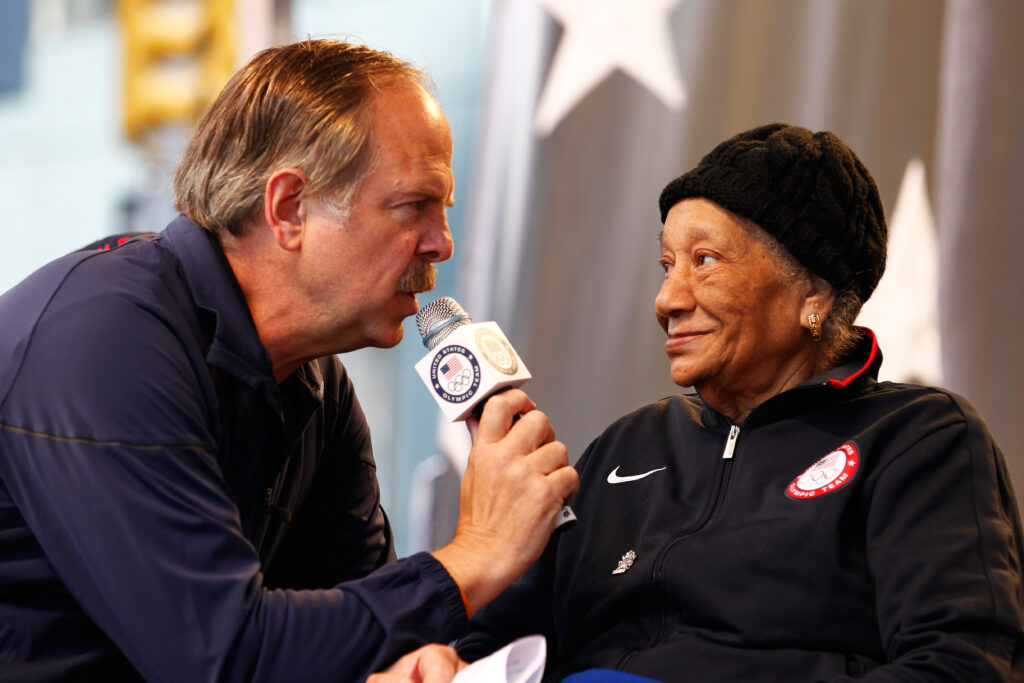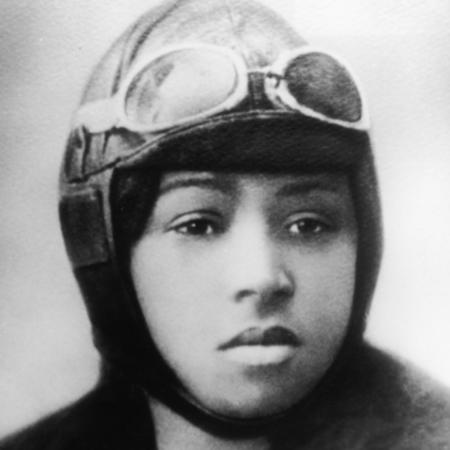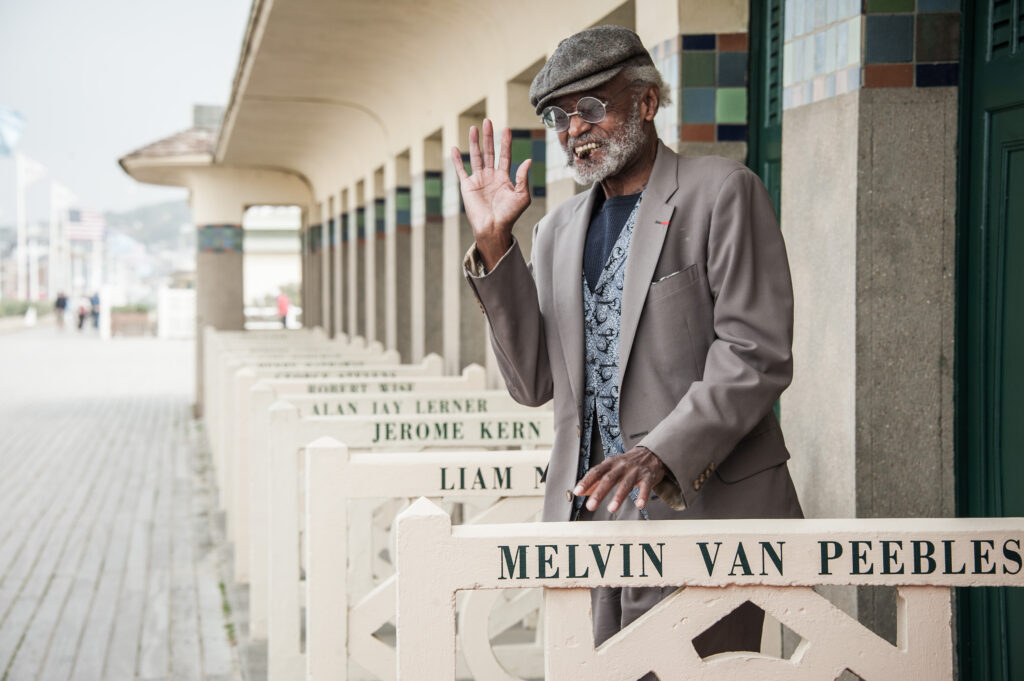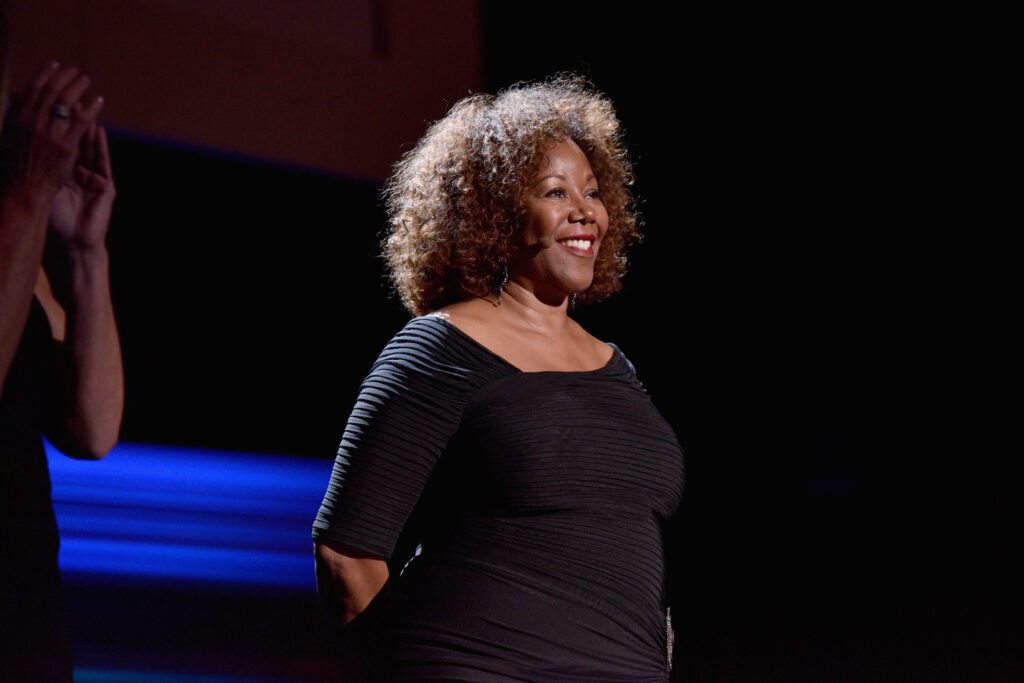Black Americans have been and will continue to be pivotal to change, discovery, innovation and more in the US, despite the adversity and disadvantages they have been subjected to since their arrival to this country. That is why it is so important to dedicate at least one time of the year to celebrating Black history. There is not enough time in just the month of February to acknowledge and celebrate all of the historical events that have occurred throughout Black American history. However, this list of Black History Month people to learn about is a great way to recognize lesser known Black Americans who have made history.
21 Black History Month People of Note To Acknowledge and Celebrate
Black Americans did not (and still do not) have the societal advantages to be the leaders of innovation and other advancements/achievements that white counterparts have been known to be. However, there are still so many Black Americans that overcame adversities and were the first, not just of BIPOC, people to achieve the feats they are credited with. Though being the first to achieve something of a community that often has to “work twice as hard” is already such an accomplishment, some of these Black History Month people of note were the first Americans period of their kind. Black history is American history and this is further proof why these legends and heroes deserve recognition beyond the month of February.
Robert Smalls (1839-1915)
Robert Smalls was born into slavery in Beaufort, South Carolina and became known for his daring escape from enslavement during the American Civil War. In 1862, while working on a Confederate transport ship, Smalls and a crew of enslaved individuals commandeered the vessel, the CSS Planter, and sailed it to Union forces. This courageous act not only secured freedom for Smalls and his crew but also provided the Union with valuable intelligence. After the Civil War, Smalls continued to make significant contributions. He served in the South Carolina State Legislature and the U.S. House of Representatives, advocating for civil rights, education, and economic opportunities for African Americans.
Mary Kenner (1912-2006)
Mary Kenner was an African American inventor who developed the first practical, patented version of the sanitary belt. Her invention aimed to improve menstrual hygiene for women. She received a patent for the sanitary belt in 1957. In addition to the sanitary belt, Kenner patented several other inventions, including tray and pocket attachments for wheelchairs, a mounted back washer and a bathroom tissue holder. Despite facing racial and gender discrimination, she persevered and made important contributions to women’s health and comfort.
Matthew Henson (1866-1955)
Matthew Henson was an African American explorer and adventurer best known for his role in the first successful expedition to the North Pole. He accompanied Robert Peary on multiple Arctic expeditions, and in 1909, they reached what was said to be the North Pole. While Peary received widespread recognition for the achievement, Henson’s contributions were often overlooked. However, in later years, efforts were finally made to acknowledge and honor Henson for his role in the historic expedition. After the Arctic expeditions, Henson worked for the U.S. Customs House in New York City. In 1937, he was made an honorary member of the prestigious Explorers Club.
Alice Coachman (1923-2014)

Alice Coachman was an American athlete and the first Black woman to win an Olympic gold medal. She achieved this historic feat in the high jump at the 1948 Summer Olympics in London. Born in Albany, Georgia, Coachman faced racial segregation and limited opportunities for Black athletes. Despite these challenges, she excelled in track and field, earning numerous national titles before her Olympic triumph. Coachman’s pioneering achievement paved the way for future Black athletes and inspired generations. She later became involved in various philanthropic efforts and sports-related initiatives.
Claudette Colvin (b. 1939)
Claudette Colvin was a key figure in the early civil rights movement. At the age of 15, she refused to give up her seat to a white person on a bus in Montgomery, Alabama, nine months before Rosa Parks’ similar valiant act. Colvin was arrested and charged, and her case became part of the legal battle against bus segregation. Although her actions were pivotal, the civil rights leaders ultimately chose Rosa Parks as the face of the Montgomery Bus Boycott due to concerns about Colvin’s age and personal life. Colvin’s courage and defiance were significant in challenging segregation laws, and her case contributed to the larger momentum for desegregation in public transportation.
Bayard Rustin (1912-1987)
Bayard Rustin was a prominent civil rights activist, strategist, and organizer. He played a crucial behind-the-scenes role in the civil rights movement and was a chief organizer of the 1963 March on Washington for Jobs and Freedom. Rustin was a strong advocate for nonviolent resistance, and he had a significant influence on Martin Luther King Jr. He introduced King to the principles of Gandhi’s nonviolent philosophy and was a key organizer of the Southern Christian Leadership Conference (SCLC). Rustin faced challenges due to his homosexuality, which led to tension within the civil rights movement and Rustin’s efforts being buried in the background. Despite these challenges, his contributions to the fight for civil rights and social justice have gained increasing recognition in recent years.
Maggie L. Walker (1864-1934)
Maggie Lena Walker was an African American entrepreneur, community leader, and civil rights activist. She became the first female African American bank president when she founded and served as the president of the St. Luke Penny Savings Bank in Richmond, Virginia. Walker was deeply involved in community and civic activities. She advocated for economic empowerment and education for African Americans. Her work with the Independent Order of St. Luke, a mutual aid society, provided financial assistance and educational opportunities to the Black community. Maggie L. Walker’s achievements in business and activism were groundbreaking, and she left a lasting legacy as a trailblazer for African American women in the realms of finance and community leadership.
Fannie Lou Hamer (1917-1977)
Fannie Lou Hamer was a prominent voting rights activist and a leader in the civil rights movement. She played a crucial role in organizing the Mississippi Freedom Summer of 1964, which aimed to register African American voters in the state. Hamer co-founded the Mississippi Freedom Democratic Party (MFDP) to challenge the exclusion of Black voters from the regular Democratic Party in the state. She and the MFDP gained national attention during the 1964 Democratic National Convention. Hamer endured significant hardships, including violence and threats, for her activism. Her famous line, “I’m sick and tired of being sick and tired,” became a rallying cry for the civil rights movement. She continued her advocacy for voting rights and social justice until her death.
Garrett Morgan (1877-1963)
Garrett Morgan was an African American inventor and entrepreneur known for his contributions to traffic safety and firefighting. In 1923, he patented the three-position traffic signal, which included the innovation of the yellow caution light. Morgan is also credited with inventing an early version of the gas mask, which he called the Morgan Safety Hood. His invention was used to rescue workers trapped in a tunnel during the Cleveland Waterworks Tunnel Disaster in 1916. In addition to his inventions, Morgan founded the Cleveland Call, a Black newspaper, and became a successful businessman. His innovations and entrepreneurial achievements have had a lasting impact on public safety and urban infrastructure.
Rebecca Lee (1833-1915)
Rebecca Lee is widely recognized as the first African American woman to receive a medical degree in the United States. She earned her medical degree from the New England Female Medical College in 1864. After completing her medical education, Lee worked as a nurse and physician, providing healthcare to freed slaves in Richmond, Virginia, during the Civil War. She later continued her medical career in various capacities, focusing on promoting public health and well-being. Rebecca Lee’s achievements opened doors for future generations of African American women in medicine. Her dedication to healthcare and her pioneering role in the medical profession have left an enduring legacy.
Pauli Murray (1910-1985)
Anna Pauline “Pauli” Murray was a pioneering civil rights activist, lawyer, and author. She played a crucial role in both the civil rights and women’s rights movements. Her legal scholarship and advocacy laid the groundwork for challenging discriminatory laws and practices. Murray co-founded the National Organization for Women (NOW) in 1966, along with other prominent feminists. She addressed issues of gender discrimination and advocated for equal rights for women. In 1977, Pauli Murray became the first African American woman ordained as an Episcopal priest. Throughout her life, she grappled with issues of race, gender, and sexuality, and her work continues to inspire discussions on intersectionality.
Bessie Coleman (1892-1926)

Bessie Coleman was an American aviator and the first African American woman to hold a pilot’s license. Facing racial and gender discrimination in the United States, she traveled to France in 1920 to pursue aviation training and earned her international pilot’s license in 1921. Coleman became a celebrated barnstormer, performing aerial stunts and parachute jumps at airshows. She used her fame to challenge racial stereotypes and encourage other Black individuals to pursue careers in aviation. Bessie Coleman’s determination and accomplishments made her a trailblazer in aviation. Her legacy paved the way for future generations of African American aviators and inspired the establishment of the Bessie Coleman Aero Club in the 1930s.
Dr. Charles Drew (1904-1950)
Charles Drew was a pioneering African American physician, surgeon, and medical researcher. He is best known for his work in the field of blood banking and the development of large-scale blood plasma processing. Drew’s research led to the discovery that blood plasma could be separated and dried for later use, making it possible to store and transport blood for transfusions. This innovation significantly improved the efficiency of blood banks during World War II. Despite his significant contributions, Drew faced racial discrimination in his professional life. He resigned from the American Red Cross after a policy was implemented that segregated blood based on the race of the donor. Drew’s legacy, however, remains as a pioneering figure in the field of blood transfusion and medicine.
Elijah McCoy (1844-1929)
Elijah McCoy was a Canadian-born African American inventor and engineer known for his numerous inventions and innovations, particularly in the field of mechanical lubrication. He held over 50 patents during his lifetime. McCoy’s inventions were so reliable that people began asking for them by name, leading to the phrase “the real McCoy,” which is now used in the English language to denote something of high quality and authenticity. McCoy’s inventions, including a self-regulating lubricator for steam engines and a graphite lubricator for oiling machinery, had a significant impact on the efficiency and reliability of engines in various industries.
Zora Neale Hurston (1891-1960)
Zora Neale Hurston was a prominent African American author, folklorist, and anthropologist, best known for her contributions to African American literature during the Harlem Renaissance. Hurston’s most famous work is the novel “Their Eyes Were Watching God,” which is considered a classic of African American literature. She also wrote extensively about African American folklore, capturing the stories, songs, and cultural expressions of the communities she studied. In addition to her literary achievements, Hurston made significant contributions to the field of anthropology. She conducted ethnographic research in the American South and the Caribbean, documenting the rich cultural heritage of African American and Afro-Caribbean communities.
Marian Anderson (1897-1993)
Marian Anderson was an internationally acclaimed African American contralto singer, known for her rich voice and significant contributions to classical music. She faced racial discrimination in the United States but achieved widespread recognition and success in Europe. Anderson gained national attention in 1939 when she performed a historic open-air concert on the steps of the Lincoln Memorial in Washington, D.C., after being denied the opportunity to sing at Constitution Hall due to racial segregation policies. In 1955, Marian Anderson became the first African American to perform with the Metropolitan Opera in New York City, breaking racial barriers in the world of classical music.
Melvin Van Peebles (1932-2021)

Melvin Van Peebles was a trailblazing African American filmmaker, actor, and author. He is often regarded as a pioneer in the genre of Blaxploitation films, which addressed social and political issues in the African American community during the 1970s. Van Peebles wrote, directed, and starred in the influential film “Sweet Sweetback’s Baadasssss Song” (1971), which played a significant role in the development of independent Black cinema. In addition to his contributions to cinema, Van Peebles was a successful author, playwright, composer, and musician. His impact on the film industry and cultural expression extended beyond the boundaries of traditional filmmaking.
Ronald McNair (1950-1986)
Ronald McNair was an accomplished physicist, NASA astronaut, and the second African American to fly in space. He flew on the Space Shuttle Challenger during the STS-41-B mission in 1984. McNair earned a Ph.D. in physics from the Massachusetts Institute of Technology (MIT) and became a recognized expert in laser physics. His achievements in academia and space exploration inspired many aspiring scientists and engineers. Tragically, Ronald McNair lost his life in the Space Shuttle Challenger disaster in 1986. His legacy lives on through the Ronald E. McNair Post-Baccalaureate Achievement Program, which supports underrepresented students pursuing advanced degrees in STEM fields.
Mae C. Jemison (b. 1956)
Mae C. Jemison is an American astronaut, physician, and engineer who made history as the first African American woman to travel in space. She flew aboard the Space Shuttle Endeavour in 1992 during mission STS-47. Before her career with NASA, Jemison worked as a general practitioner and participated in medical research. She has also been an advocate for science education and technology. After leaving NASA, Jemison has been involved in various educational and entrepreneurial initiatives. She founded the Jemison Group, a technology consulting firm, and has been an advocate for advancing STEM (Science, Technology, Engineering, and Mathematics) education.
Ruby Bridges (b. 1954)

Ruby Bridges is an American civil rights activist known for being the first African American child to desegregate the all-white William Frantz Elementary School in New Orleans in 1960. At the age of six, she faced hostility and discrimination as she attended school, accompanied by federal marshals. Artist Norman Rockwell captured Bridges’ story in his famous painting “The Problem We All Live With,” which depicts her being escorted to school by U.S. Marshals. The painting has become an iconic representation of the civil rights movement. Bridges has continued to be an advocate for civil rights and education. She founded the Ruby Bridges Foundation to promote tolerance, respect, and appreciation of diversity. Her courageous act paved the way for the desegregation of public schools.
John Lewis (1940-2020)
John Lewis was a key figure in the American civil rights movement. He played a pivotal role in the struggle for racial equality and justice, participating in significant events such as the March on Washington and the Selma to Montgomery marches. Lewis was a strong advocate for nonviolent protest and civil disobedience and was inspired by Martin Luther King Jr. He was one of the leaders of the Student Nonviolent Coordinating Committee (SNCC) and a key organizer of the March on Washington in 1963. Lewis transitioned into politics and served as the U.S. Representative for Georgia’s 5th congressional district from 1987 until his passing in 2020. He was known for his dedication to social justice, voting rights, and human rights.
